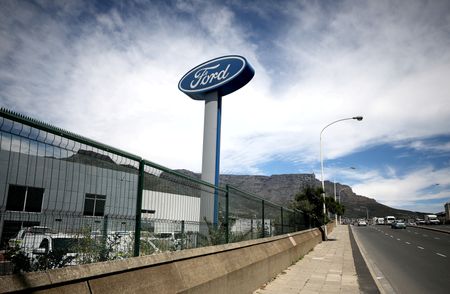By Isaac Anyaogu
LAGOS (Reuters) -Nigeria’s daily oil and gas production slumped during a brief nationwide strike by oil workers’ union PENGASSAN that was called off on Wednesday after government-mediated talks with Dangote Refinery, according to an impact report seen by Reuters.
The strike, which began on September 28, was called after the Dangote refinery, Africa’s largest with a crude processing capacity of 650,000 barrels per day, dismissed more than 800 unionised staff.
The walkout cut about 283,000 barrels per day of oil, roughly 16% of national output, and 1.7 billion standard cubic feet per day of gas, while knocking out more than 1,200 megawatts of power generation, according to the report by state oil firm NNPC Ltd.
The NNPC had warned the disruption posed a “material threat to national energy security” if prolonged.
Key facilities shuttered during the action included the Shell-operated Bonga floating production unit and the Oben gas plant, while the restart of Nigeria LNG’s Train 5 and 6 was delayed, and midstream networks were disrupted.
Cargo loadings for Dangote refinery as well as at export terminals such as Akpo, Brass, and Egina were also delayed, risking demurrage costs, and at least five critical maintenance and project timelines slipped, the report said.
NNPC said it activated business continuity plans and deployed non-union staff to sustain operations during the stoppage, but warned of “significant revenue losses” from missed liftings and gas sales.
The union suspended the strike after talks brokered by the government, easing immediate supply risks, though NNPC cautioned that systemic vulnerabilities remained.
(Additonal reporting by Tife Owolabi in Yengoa. Writing by Elisha Bala-Gbogbo. Editing by Mark Potter)










